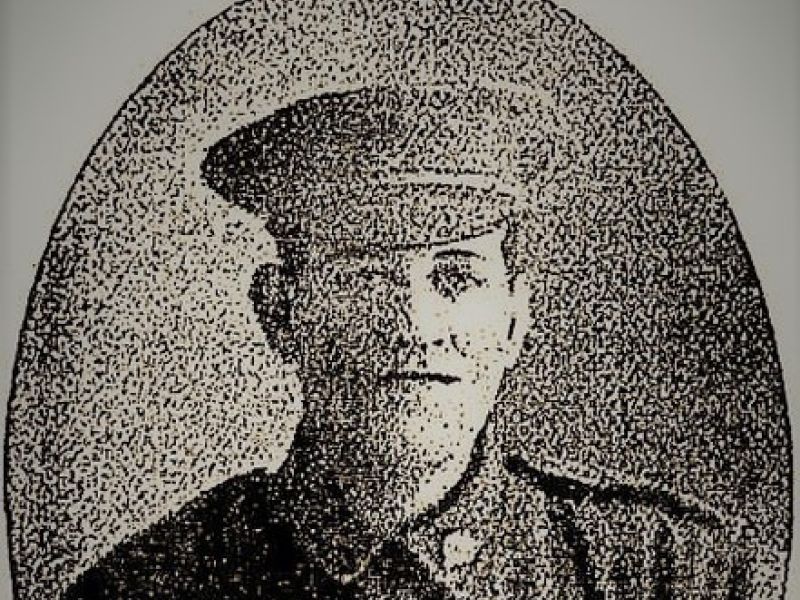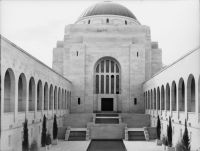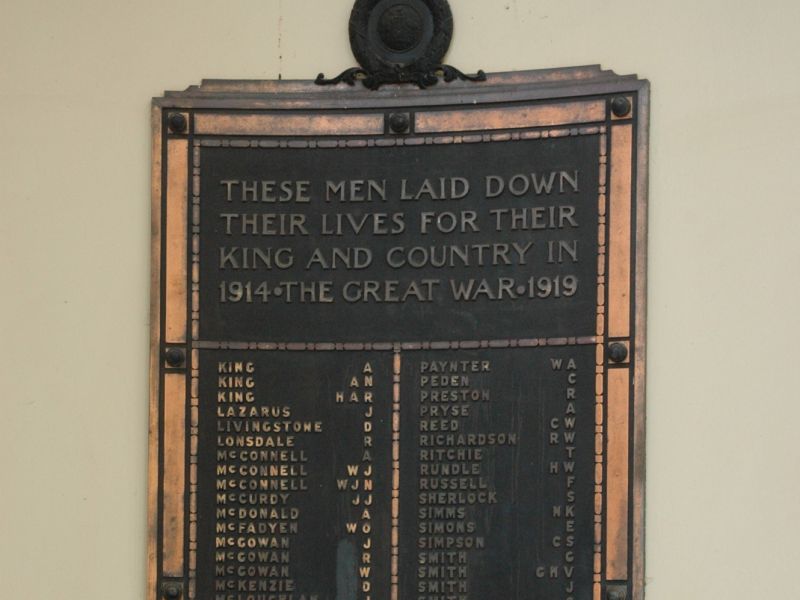Private Gordon Alfred Freeman, 38th Battalion, AIF
Gordon Freeman was born in 1895 to Henry and Annie Freeman of Kerang, Victoria. He had one brother and three sisters. His father worked on the staff of the Kerang Times newspaper for 25 years, and died in 1903 when Gordon was eight years old. Gordon grew up in the Kerang district, where he was known as “a young man of great promise”. He was an active member of the Methodist church, and a lay preacher on the district circuit. He was also a strong temperance advocate and had for many years been a member of the local Rechabite lodge. Following his education, Gordon Freeman went on to work as a salesman in his grandfather’s timber-merchant business in Kerang.
Gordon Freeman enlisted in the Australian Imperial Force in February 1916. He underwent a period of training in Australia before leaving for active service overseas with the 38th Battalion on board the troopship Runic. Private Freeman arrived in England on 10 August 1916, and continued training on Salisbury Plain for another three and a half months before being sent to fight on the Western Front.
The 38th Battalion spent the bitterly cold winter of 1916 to 1917 rotating in and out of the front line and conducting raids into the German trenches. While briefly out of the front line in January 1917, Private Freeman wrote to his grandfather, saying, “I cannot help thinking of the boys who are out there tonight holding the line which we left … when one has spent the time I have in the line (not very long) you begin to realise the meaning of war. Especially do you think when one by one you see your mates whom you have trained with going out on stretchers sleeping the peaceful sleep of death, or else wounded, yet triumphantly bearing the pain … men are here brought face to face with eternity, they die just as brave as they live.”
On 27 May 1917 the 28th Battalion conducted a raid into German lines near the Belgian village of Ploegsteert. Sergeant Frank Whitelaw later recalled, “we had the bad luck to get cut up. I was … busy binding a wounded man’s leg [when] one of the boys came to me and said that Gordon was hit very hard and was dying.” Although Whitelaw went to see him as soon as he could, Freeman had already died.
Whitelaw wrote, “Gordon was a good boy, always willing to do his bit, and was well liked by the officers and all the men. He died doing his duty for his country and will be missed very much by all the boys of the platoon.”
The Freemans received a number of letters of condolence from the front. Corporal McKinnon wrote “Gordon and I were tent mates when he first came to Bendigo camp, and being in my section since, I knew him very well, and can assure you he was at all times the clean, good-living lad over here he used to be at home. He was loved by his comrades and admired by his officers as a true soldier. His platoon sergeant, J.H. Sharp, wrote, “I can assure you that Gordon was extremely well liked by both officers and comrades, always willing and cheerful no matter how unpleasant the task, cool and resourceful when under fire. We will miss him very much.”
At a memorial service held in the Methodist Church in Kerang for Gordon, the preacher “paid tribute to [Freeman’s] humbleness of mind in the pulpit, his enthusiasm in every good cause, his thoughtfulness and cheery ways as a son and brother, and the strong desire which moved his brave young heart to join in the triumph of the righteous cause of Britain.”
Private Gordon Freeman was buried in the Strand Military Cemetery near Ploegsteert, where he lies today in a grave with no epitaph. He was 22 years old.
- AWM Roll of Honour https://www.awm.gov.au/collection/R1730994

 Australian War Memorial
Australian War Memorial